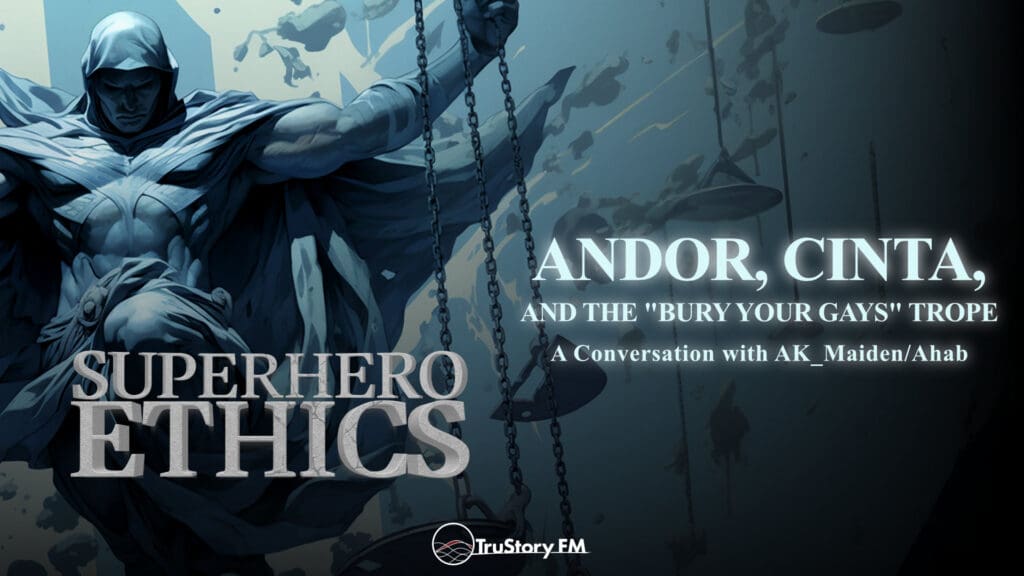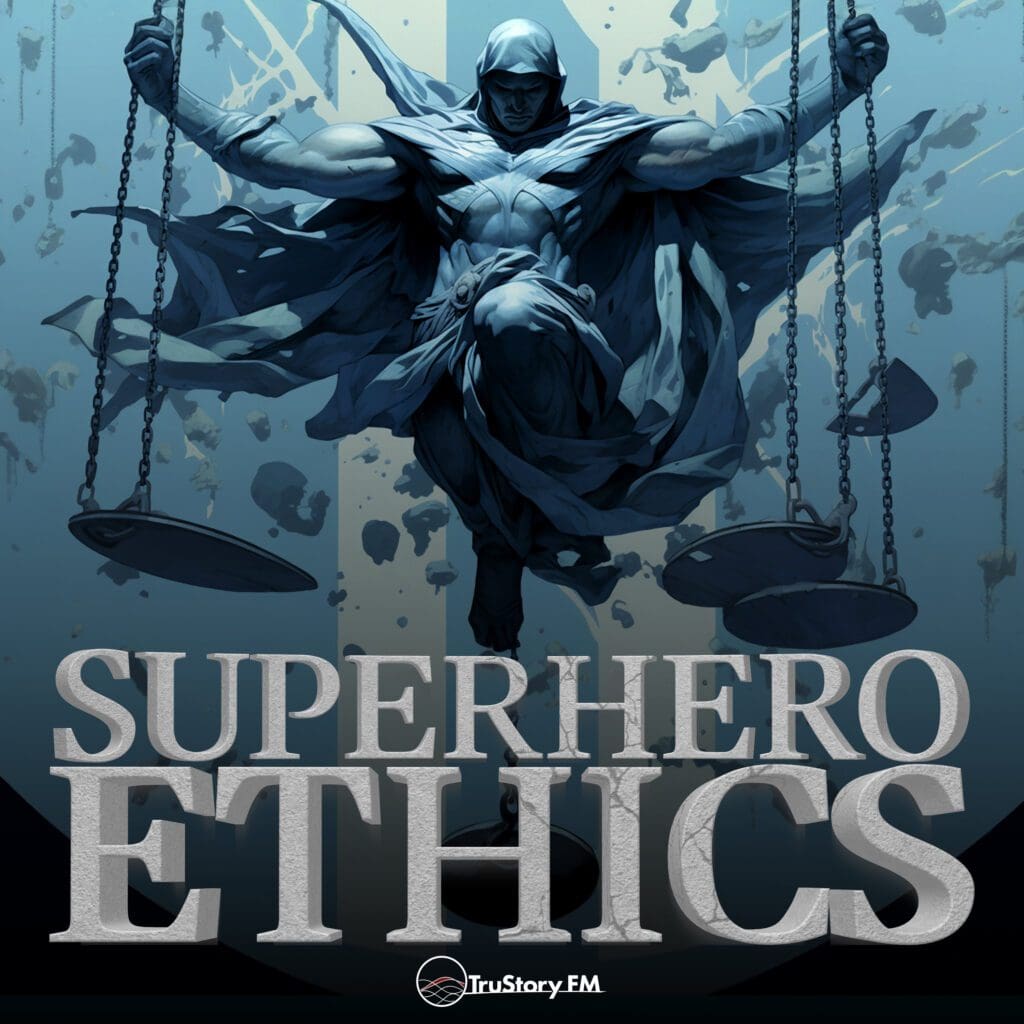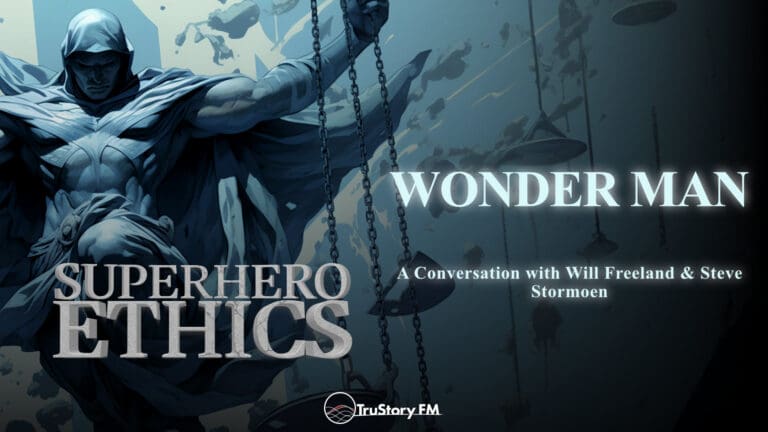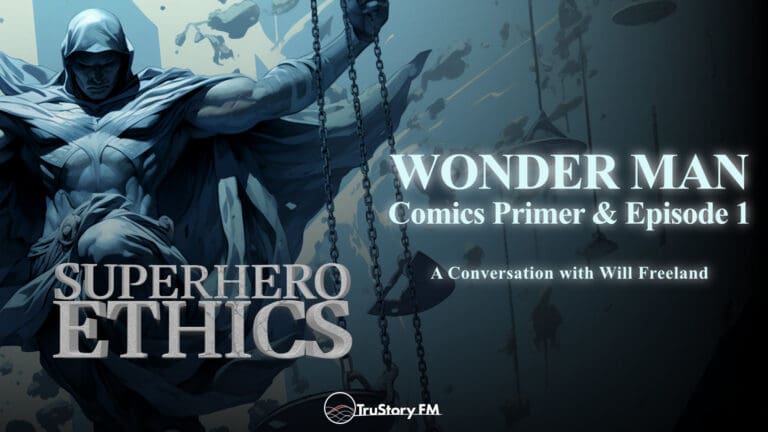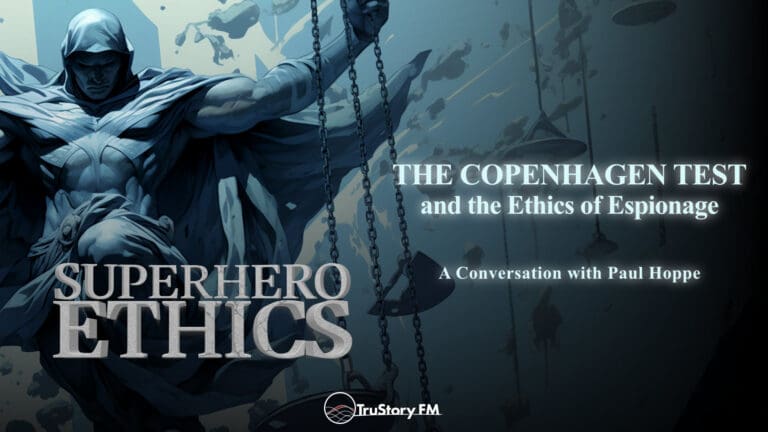This week Superhero Ethics dives deep into the “bury your gays” trope—where LGBTQ+ characters disproportionately meet tragic ends—examining its history, evolution, and modern implications, and whether it can be applied to the death of Cinta in Andor.
The conversation begins with the trope’s roots in 19th century British law and the Hays Code, which allowed “bad behavior” to be depicted on screen only if characters faced consequences. Tracing this trope from there all the way to the modern day, the episode explores how social media amplified fan outrage and created lasting change in how writers approach queer storylines.
The hosts wrestle with whether Cinta’s death in Andor constitutes “burying your gays,” given that many characters die in the show’s realistic portrayal of rebellion. They examine how the lack of queer representation in the broader Star Wars franchise adds weight to this single relationship, and whether it’s fair to hold individual creators responsible for franchise-wide representation gaps. The discussion reveals how intersectionality compounds the problem—Cinta was both the queer character and the character of color in an interracial relationship.
The episode highlights positive examples like Schitt’s Creek, which promised viewers that queer tragedy would never be part of the story, and The Last of Us, which handled queer character deaths in ways that felt organic to the world rather than punitive. The hosts argue that diverse writers’ rooms could help creators navigate these sensitive storytelling choices while still allowing for dramatic character deaths when they serve the narrative.
Other Topics Covered:
- The “fridging” trope and its overlap with “bury your gays”
- How the AIDS crisis shaped media representation in the 1980s-90s
- The role of queer coding and queer baiting in modern media
- Why horror films have evolved to include more surviving queer characters
- The difference between tragic queer stories and queer tragedy as plot device
- Impact of fan shipping on reactions to character deaths
- Death scenes following romantic moments: examining harmful patterns
- Positive portrayals in Station 19, The Dragon Prince, and Harley Quinn







